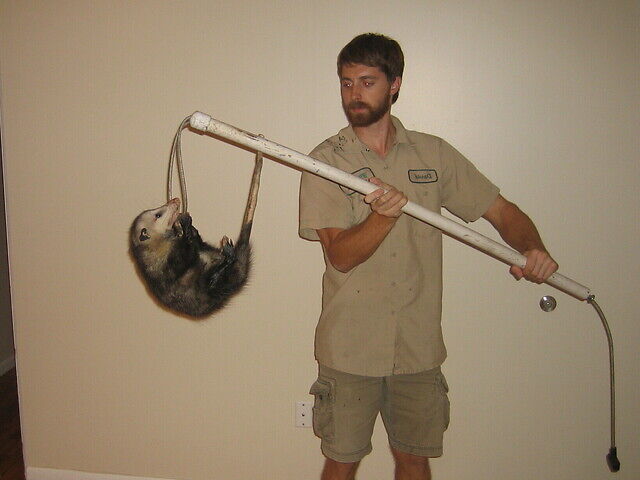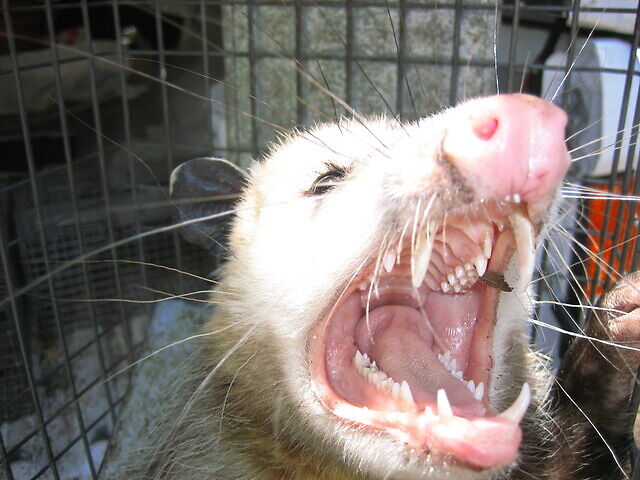Handling Opossums – Tips & Risks
Catch Me If You Can

Humans try to capture possums for several different reasons, such as:
- getting them off of private property
- catching them for scientific tests
- obtaining them as pets
- getting their fur
- turning them into recipes
Your intended purpose influences how you choose to catch them. For instance, if you are after its fur, you want to cause minimal physical damage to its outer body. If you want them for food, it is preferable to catch them alive and feed them corn for a few days before cooking them thoroughly.
Worst Cases

If you have the guts to catch an opossum with your hands, you need to be mindful of the risks.
- The first danger is rabies, which has been proven to be very rare in possums, but still a possibility. Rabies attacks the central nervous system, causing infection of the brain and can lead to more serious consequences. If bitten, you firstly want to attend to the wound by cleaning it out and then getting tested as soon as possible.
- Other zoonotic diseases (diseases passed from animals to humans) you could catch include Murine Typhus, Leptospirosis, bacterial diseases, skin ulcers, Hepatitis A, and Tularemia, to name a few.
Spreading of Diseases
Diseases can be spread through the transfer of fleas, getting scratched, getting bitten, touching the infected animal’s feces or urine, or touching the animal with bare hands or open wounds when skinning it. While something like Tularemia is not as common, it can be deadly if not immediately attended to. If it is any comfort, however, Tularemia responds well to treatments like antibiotics.
Staying Safe
Pneumonic Tularemia can be caught by breathing in contaminated dust. Therefore it is advisable to use a mask if possible when getting into close range with a possum. Water and soil can also be infected by the diseased carcass and can be dangerous if transmitted through eyes, contaminated foods, and open wounds.
Here are some safety tips to keep in mind:
- Use rubber gloves when handling the animal or its feces/urine
- Sanitize related areas after picking up opossum feces, carcass, or urine
- Wear goggles if possible
- Use a flea repellent to prevent flea bites from the sick animal
- Always wash your hands after handling opossums
- Avoid touching opossums with an open wound
- Use waterproof plasters if you have an open wound
- If you mop up an opossum’s mess, use laundry detergent to disinfect the mop
Be Observant
Signs you have been infected include but are not limited to:
- fever-like symptoms
- swollen lymph glands
- fatigue
- a sore throat
- skin ulcers
It is important to keep in mind that in some states it is illegal to hunt wild animals or even keep them as pets, unless you are a wildlife rehabilitator. You might actually cause deadly harm if you feed a possum an incorrect diet. Therefore, respect for wildlife is imperative.
Hopefully, you now have a deeper understanding of the benefits and dangers of possums, as well as how you can interact with them more wisely!